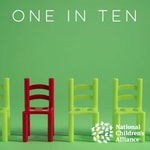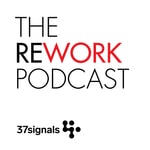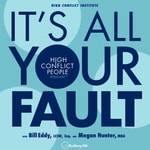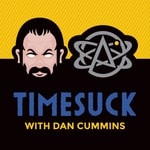One in Ten – Details, episodes & analysis
Podcast details
Technical and general information from the podcast's RSS feed.

One in Ten
National Children's Alliance
Frequency: 1 episode/18d. Total Eps: 125

Engaging the brightest minds working to solve one of the world's toughest challenges—child abuse. Join us for conversations with leading experts on science, law, medicine, morality, and messaging. One in Ten is brought to you by National Children's Alliance, the largest network of care centers in the U.S. serving child victims of abuse. Our host is Teresa Huizar, NCA's CEO and a national expert on child abuse intervention and trauma treatment. Visit us online at nationalchildrensalliance.org.
Recent rankings
Latest chart positions across Apple Podcasts and Spotify rankings.
Apple Podcasts
🇺🇸 USA - socialSciences
27/07/2025#73🇺🇸 USA - socialSciences
26/07/2025#51🇺🇸 USA - socialSciences
25/07/2025#41🇺🇸 USA - socialSciences
24/07/2025#66🇺🇸 USA - socialSciences
22/07/2025#97🇺🇸 USA - socialSciences
21/07/2025#71🇺🇸 USA - socialSciences
17/07/2025#95🇺🇸 USA - socialSciences
16/07/2025#68🇺🇸 USA - socialSciences
15/07/2025#49🇺🇸 USA - socialSciences
14/07/2025#55
Spotify
No recent rankings available
Shared links between episodes and podcasts
Links found in episode descriptions and other podcasts that share them.
See all- https://suicidepreventionlifeline.org/
1399 shares
- https://www.who.int/
164 shares
RSS feed quality and score
Technical evaluation of the podcast's RSS feed quality and structure.
See allScore global : 58%
Publication history
Monthly episode publishing history over the past years.
Why Don't More Teachers Report Abuse?
Season 6 · Episode 12
jeudi 22 août 2024 • Duration 38:48
Why Don't More Teachers Report Abuse? Understanding the Challenges and Solutions
In this episode of 'One in Ten,' host Teresa Huizar speaks with Amanda Glouchkow, a Research Assistant at the University of Ottawa, about the complexities teachers face in identifying and reporting child abuse. They discuss the accuracy of teachers identifying various forms of abuse, the inconsistency in reporting, and the international differences in training and cultural norms. The conversation explores underlying factors such as teacher training, beliefs, and systemic support, highlighting the need for better preparation and support for teachers as mandatory reporters. Amanda also shares surprising findings from her research and emphasizes the importance of improving training and support for educators.
Glouchkow's study:
Glouchkow, A., Weegar, K. & Romano, E. Teachers’ Responses to Child Maltreatment. Journ Child Adol Trauma 16, 95–108 (2023). https://doi.org/10.1007/s40653-022-00473-2
Topics in this episode
Time Topic
00:00 Introduction and Episode Overview
01:18 Meet Amanda Glouchkow: From Design to Child Abuse Research
02:52 Global Variations in Child Abuse Reporting
05:58 Barriers to Child Abuse Detection and Reporting
11:03 Surprising Findings on Abuse Identification
15:48 Study Design and Methodology
28:02 Implications for Training and Support
35:28 Future Research and Final Thoughts
Did you like this episode? Please leave us a review on Apple Podcasts.
Creating Change Through Storytelling
Season 6 · Episode 11
samedi 27 juillet 2024 • Duration 51:28
How do we persuade people more effectively and more authentically? And how does telling our own leadership story help those we’re trying to persuade to trust us and what we’re trying to do? Storytelling, and using it to make human connections, is a key part of the answer. We spoke with Sally Zimney, the author of Speaking Story, to learn more.
Topics in this episode:
02:41 – Origin story
06:22 – Storytelling is having a moment
11:27 – Female leaders, storytelling, and leadership
15:14 – What is a story?
16:58 – Misconceptions about storytelling
19:33 – Find your own story
29:52 – What the audience needs from you
33:06 – How do you want people to feel?
35:13 – Editing
37:49 – Terrible advice
39:39 – Preparing (great advice)
44:46 – Perfection kills connection
51:01 – For more information
Links:
Sally Zimney is the author of Speaking Story; visit her website at bemoved.com
Sally was the closing speaker at the 2024 NCA Leadership Conference
For more information about National Children’s Alliance and the work of Children’s Advocacy Centers, visit our website at NationalChildrensAlliance.org. Or visit our podcast website at OneInTenPodcast.org. And join us on Facebook at One in Ten podcast.
Did you like this episode? Please leave us a review on Apple Podcasts.
A Sea of Red Dots: The Explosion in Online Child Sexual Abuse
Season 6 · Episode 2
lundi 12 février 2024 • Duration 41:53
While the presence of child sexual abuse images in child sexual abuse cases is not new, the sheer scale and scope and ubiquity of it all is. The exponential growth in the trading of these images has created a sophisticated marketplace designed around exploiting children. Three guests join us today to discuss child sexual abuse materials online (CSAM): Elizabeth and Ted Cross and Stefan Turkheimer.
What Liz and Ted set out to learn was the degree to which incest played into the production of this material, what types of sex acts those trading in CSAM were most interested in, and what ages were most common among the child victims. It’s terribly disturbing but also important for us to understand in order to properly combat it.
We speak with Stefan about important policy implications. What can policy makers do to hold tech companies more responsible for preventing the proliferation of these materials? And how do we leverage the resources needed to serve victims? Please take a listen.
Topics in this episode:
- The scope of the problem (2:06)
- A sea of red dots (4:16)
- Research design (12:35)
- Findings (20:41)
- Severity of abuse (24:03)
- The link with incest (28:45)
- Public policy (30:25)
- Implications for practice (38:29)
- For more information (41:25)
Links:
Elizabeth Cross, Ph.D., Cross Associates Research & Evaluation Services, LLC, and adjunct professor of social work and child advocacy at Montclair State University
Theodore Cross, Ph.D., senior research specialist – research professor, Children and Family Research Center at the University of Illinois Urbana-Champaign
Stefan Turkheimer, vice president for public policy, RAINN
Map and severity of abuse list from a presentation by Cross, Cross, Cooper, Turkheimer, and Bailey to the International Society for the Prevention of Child Abuse and Neglect Congress
Internet Crimes Against Children Task Force (ICAC)
Section 230 of the Communications Decency Act
For more information about National Children’s Alliance and the work of Children’s Advocacy Centers, visit our website at NationalChildrensAlliance.org. Or visit our podcast website at OneInTenPodcast.org. And join us on Facebook at One in Ten podcast.
Did you like this episode? Please leave us a review on Apple Podcasts.
Treating the Smoke and Not the Fire
Season 1 · Episode 6
vendredi 12 juillet 2019 • Duration 43:07
Episode 106: “Treating the Smoke and Not the Fire” is a conversation about a new documentary, Cracked Up—an emotionally arresting, trauma-informed look at the lifelong consequences when we fail to protect a child. In Cracked Up, filmmaker Michelle Esrick chronicles Saturday Night Live star Darrell Hammond’s journey from childhood trauma, through decades of misdiagnoses of its effects, toward hope and healing. The duo talk about what drove them to make the film and how they hope it will help change the conversation about child abuse. As Michelle says, too often society treats the smoke—things like addiction and mental illness—and not the fire—the very experiences that caused them in the first place.
Topics in this episode:
· What drove them to make Cracked Up (2:20)
· What they didn’t know at the start of the journey (4:34)
· Trauma is when your reality is not seen or known (8:04)
· Telling a survivor’s story with respect and without causing them further harm (9:36)
· A hunger to call out the bad guy, and to be believed (12:14)
· The consequences of trusting your own reality (14:23)
· The haunted house—the shock a simple thought can cause (23:18)
· Trauma, substance use, and addiction: Treating the smoke and not the fire (28:25)
· The investment in disbelief. It’s hard to shatter images—and monsters hide in the light (35:23)
· Public policy: What would you like to see changed? (39:38)
· How to set up an educational screening of Cracked Up (41:35)
· Our next episode topic (42:00)
Links:
Darrell and Michelle, NPR radio interview on WNYC (at 34:25)
Darrell’s book about his experiences
Dr. Bessel van der Kolk and The Body Keeps the Score
With Dr. Jacob Ham in “The Long Arm of Childhood Trauma” episode of the Road to Resilience podcast
Dr. Vincent Felitti, co-principal investigator of the Adverse Childhood Experiences (ACE) Study
Host an educational screening of Cracked Up
Resources on the Cracked Up movie website
And the $10 million we’d like to see the government spend is to give the Centers for Disease Control and Prevention funding for research into preventing child abuse. Learn more about that in our interview on “Child Abuse as a Public Health Issue” with Dr. Elizabeth Letourneau.
Did you like this episode? Please leave us a review on Apple Podcasts.
The Science of Storytelling
Season 1 · Episode 5
vendredi 28 juin 2019 • Duration 44:47
Episode 105: “The Science of Storytelling” features Nat Kendall-Taylor, CEO of the FrameWorks Institute, which works to change the conversation on social issues. We discussed how to get people to engage in conversations about an uncomfortable topic—child sexual abuse. What should we change about our own messaging to give people hope that they can do something about it? We also discussed a new research project into communication strategies on this issue, and when we might learn the results.
Topics in this episode:
· The most surprising result of research into child sexual abuse. (1:47)
· How we talk about the issue can be a problem. What should we stop doing? (5:11)
· Pivoting—our biggest communication challenge. (13:28)
· When people think monsters are the root cause, what’s the solution? (18:42)
· Balanced messaging. (21:17)
· Talk about progress without losing urgency. (26:25)
· When death won’t do it in driving a sense of urgency, what will? (29:38)
· The “snapping” myth. (33:05)
· Current research on communication strategies—and when we’ll get results. (37:43)
· Summing it all up. (41:36)
· Our next episode topic. (43:42)
Links:
FrameWorks Institute
Crimes Against Children Research Center
Dr. Elizabeth Letourneau at the Moore Center for the Prevention of Child Sexual Abuse, at the Johns Hopkins Bloomberg School of Public Health. Dr. Letourneau was our very first guest on One in Ten, in the episode on “Child Abuse as a Public Health Issue.”
Did you like this episode? Please leave us a review on Apple Podcasts.
The Failure That Leads to All Others
Season 1 · Episode 4
mercredi 19 juin 2019 • Duration 48:56
Episode 104: “The Failure That Leads to All Others,” features Mary Graw Leary, a former prosecutor and a professor at The Catholic University of America School of Law. Why does child sexual abuse seem to flourish in institutional settings? How can institutions prevent abuse? And when prevention fails, how must institutions respond?
Link:
The Catholic University of America School of Law
Did you like this episode? Please leave us a review on Apple Podcasts.
The Bystander Effect—Why People Don't Report Child Abuse
Season 1 · Episode 3
vendredi 31 mai 2019 • Duration 33:16
In Episode 103: The Bystander Effect—Why People Don’t Report Child Abuse, Wendy Walsh, a research assistant professor of sociology at the Crimes Against Children Research Center at the University of New Hampshire, talks about why people shy away from reporting suspected child abuse—and how we can overcome those barriers.
Links:
Crimes Against Children Research Center
Did you like this episode? Please leave us a review on Apple Podcasts.
Faith, Trauma, and the Problem of Evil
Season 1 · Episode 2
lundi 13 mai 2019 • Duration 35:26
In Episode 102, “Faith, Trauma, and the Problem of Evil,” Teresa talks to renowned writer and trainer Victor Vieth from Zero Abuse Project about the intersection of faith and child protection. How do we respond when children struggle to understand what happened to them in the context of their faith? How can we help survivors and frontline professionals who wrestle with the human need to make sense of a world where we bear witness to trauma every day? As a Christian theologian and a former prosecutor, Victor knows the importance of learning how to handle when faith, trauma, and the problem of evil collide.
Did you like this episode? Please leave us a review on Apple Podcasts.
Child Abuse as a Public Health Issue
Season 1 · Episode 1
jeudi 2 mai 2019 • Duration 41:51
Research indicates that 15-20 percent of girls and 5-10 percent of boys in the United States are affected by child sexual abuse. Those are numbers that should make everyone sit up and take notice, and yet one of the biggest funding gaps we see in our field is the lack of government support for research on how to prevent this abuse. Instead of a public health issue, child sexual abuse is still seen by many as a criminal justice problem. In this episode, we talk to Dr. Elizabeth Letourneau of the Moore Center for the Prevention of Child Sexual Abuse about what policies she sees as fundamentally flawed, where the bright spots are, and why prevention should be a federal priority.
Mentioned in this episode:
Moore Center for the Prevention of Child Sexual Abuse
Association for the Treatment of Sexual Abusers
Sex Offender Registration and Notification Act (SORNA)
Division of Violence Prevention, Centers for Disease Control and Prevention
NCA resources for addressing youth and children with problematic sexual behaviors
Did you like this episode? Please leave us a review on Apple Podcasts.
Why Do People Believe Conspiracy Theories About Human Trafficking?
Season 6 · Episode 1
mardi 16 janvier 2024 • Duration 40:37
The rise in myths and conspiracy theories about human trafficking have been one of the most frustrating parts of being a child abuse professional over the past few years. It has been a deadly game of whack a mole, because as soon as one myth or conspiracy theory is debunked, yet another arises.
Dr. Maureen Kenny, a professor of psychology at Florida International University, set out to explore why and how these conspiracy theories were endorsed by a diverse college population in hopes that this would give us insight into better education strategies for the wider public. If you have ever moaned and groaned your way through a media report with whackadoodle ideas about trafficking or rolled your eyes at a movie that depicted it all wrong, this episode is for you. Please take a listen.
Topics in this episode:
- Origin story (1:55)
- What is human trafficking? (3:01)
- Why the uptick in myths and conspiracy theories? (5:06)
- Why we want to believe (13:13)
- Language choices (16:42)
- What kids need to know (18:49)
- Surprising findings (22:41)
- The scale of misinformation (24:41)
- Influencing the influencers (26:15)
- Future research (31:27)
- Advice for child abuse professionals (37:40)
- One bright note (38:50)
- For more information (40:10)
Links:
Maureen C. Kenny, Ph.D., professor, associate chair Academic Personnel and Diversity, Florida International University
“Conspiracy Theories of Human Trafficking: Knowledge and Perceptions Among a Diverse College Population,” Maureen C. Kenny, Claire Helpingstine, and Tracy Borelus (2023), Journal of Human Trafficking, DOI: 10.1080/23322705.2023.2225367
The study Teresa mentions: “‘Influencing the Influencers:’ A Field Experimental Approach to Promoting Effective Mental Health Communication on TikTok,” Matt Motta, Yuning Liu, and Amanda Yarnell (2023); there are multiple news stories about the study, including a recent NPR article by Andrea Muraskin (January 5, 2024)
Dr. Kenny suggests these websites to learn more about myths and facts of human trafficking:
- Polaris Project
- U.S. Department of Health and Human Services, Office on Trafficking In Persons, OUT OF THE SHADOWS: Exposing the Myths of Human Trafficking (hhs.gov)
- National Human Trafficking Hotline: Myths & Facts
For more information about National Children’s Alliance and the work of Children’s Advocacy Centers, visit our website at NationalChildrensAlliance.org. Or visit our podcast website at OneInTenPodcast.org. And join us on Facebook at One in Ten podcast.
Did you like this episode? Please leave us a review on Apple Podcasts.









